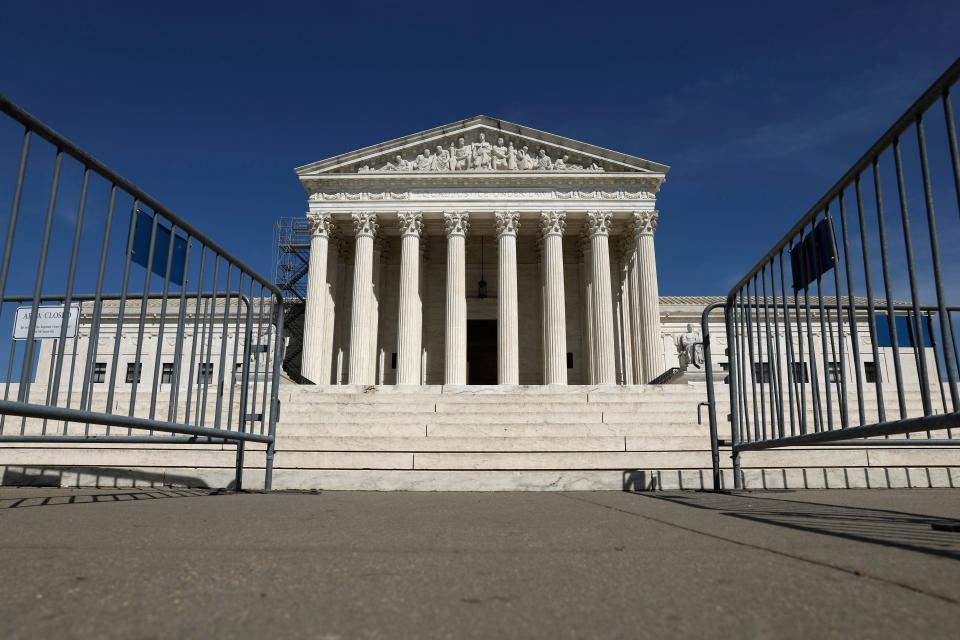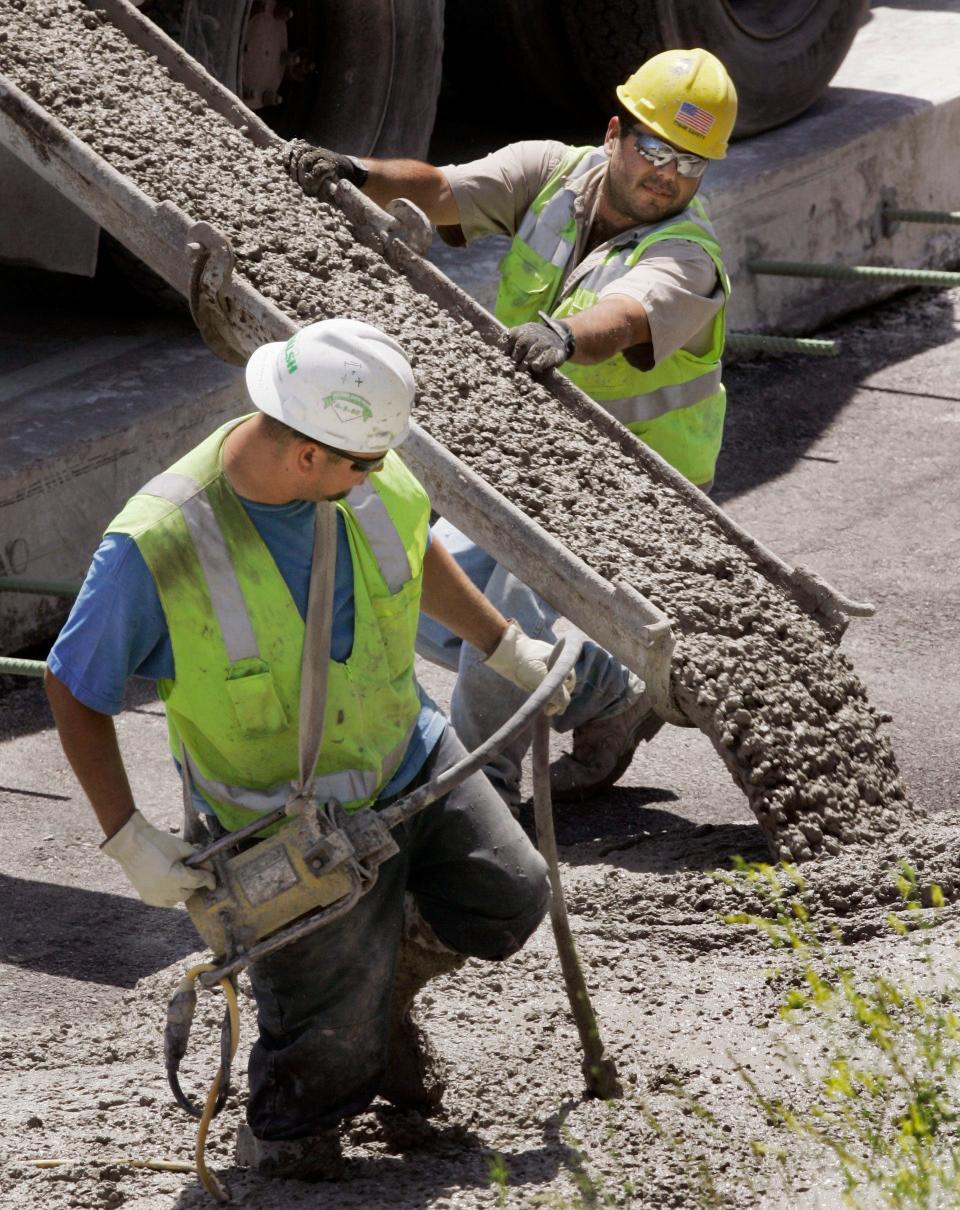Striking Teamsters ruined a company’s concrete. Supreme Court says union can be sued
- Oops!Something went wrong.Please try again later.
WASHINGTON − Labor unions were dealt a legal blow Thursday when the Supreme Court sided with a concrete company whose product was ruined after drivers of its rotating trucks walked off the job in 2017.
Glacier Northwest, a Seattle concrete company, sued the International Brotherhood of Teamsters for the damage caused by the strike after what the court described as a "mad scramble" to dump the hardening concrete before it damaged the trucks. The union countered the lawsuit should have been tossed because labor strikes are protected under federal law.
In an 8-1 decision written by Justice Amy Coney Barrett, the high court sided with the company, allowing its lawsuit for damages to continue. Critics, including Justice Ketanji Brown Jackson, who wrote a solo dissent, said the decision would "cause considerable confusion" and may erode the right of workers to strike.

What the Supreme Court union decision means for organized labor
The case was appealed from Washington state's highest court, which sided with the labor union. That court said the loss of the concrete was tied to a strike that was protected under the 1935 National Labor Relations Act. Because of that federal law, the union argued, the company was barred from filing its claim for damages.
But the Supreme Court reversed the decision. "Because the union took affirmative steps to endanger Glacier's property rather than reasonable precautions to mitigate that risk" Barrett wrote, the federal law doesn't protect its conduct.
Union advocates fear the decision gives companies an upper hand to sue workers for strikes if they can identify property that was damaged − a result that might make it less likely for employees to strike in the first place. Rakim H.D. Brooks, president of the liberal Alliance for Justice, said the decision will leave workers "under a cloud of threatened litigation if employers allege that they destroyed property."
Unions on the losing end in major Supreme Court decisions
The labor movement has enjoyed something of resurgence in recent years, with successful efforts to organize workers at Amazon and Starbucks. But on the Supreme Court, unions have recently had a harder run.
Two years ago, a divided court ruled in favor of two California fruit farmers who said union organizing on their orchards represented an unconstitutional taking of their private property. At issue was a 1975 California law that permits union organizers to access farms 120 days a year during non-work hours to meet with employees. The law grew out of efforts by César Chávez, who led strikes and marches in the 1960s and 1970s to improve conditions for farmworkers.

In 2018, the court ruled that unions cannot collect fees from non-members to help defray the costs of collective bargaining. Those fees, permitted under a 1977 decision, violate the free speech rights of those who do not want to contribute, the court said.
How did the Teamsters, Glacier Northwest react to the decision?
Teamsters General President Sean M. O'Brien lashed out at what he described as the "political hacks at the Supreme Court," arguing they voted "in favor of corporations over working people." The "corruptible justices," O'Brien said, "should be ashamed of themselves for throwing out long-standing precedent and legislating from the bench."
Noel Francisco, a former solicitor general during the Trump administration who represented the company at the Supreme Court, said Thursday's decision "vindicates the longstanding principle that federal law does not shield labor unions from tort liability when they intentionally destroy an employer's property." Francisco added that the company "is entitled to just compensation for its property that the union intentionally destroyed.”
This article originally appeared on USA TODAY: Supreme Court decision for a concrete company strikes at union power

